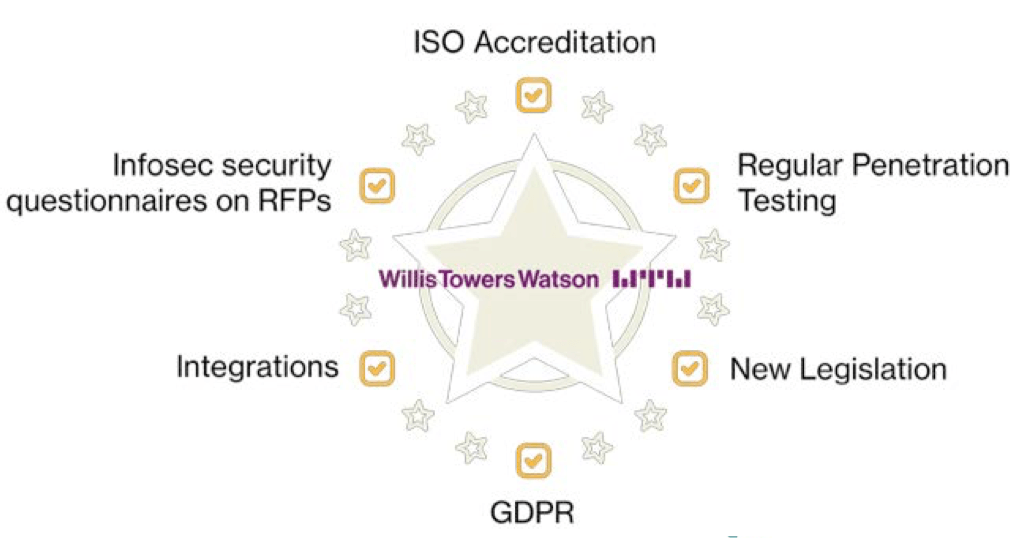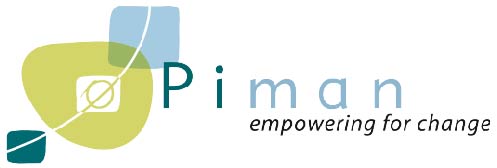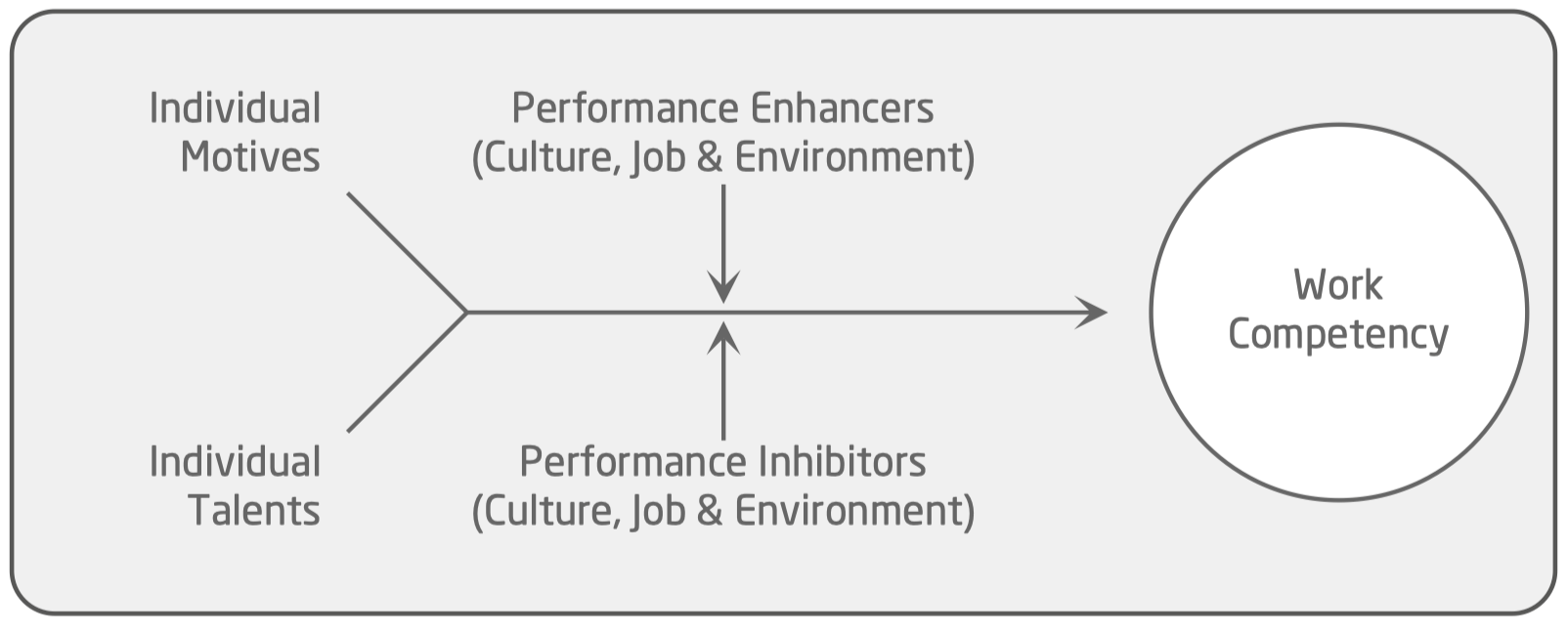Analyzing a Wave Expert Report
In-depth analysis of personality traits
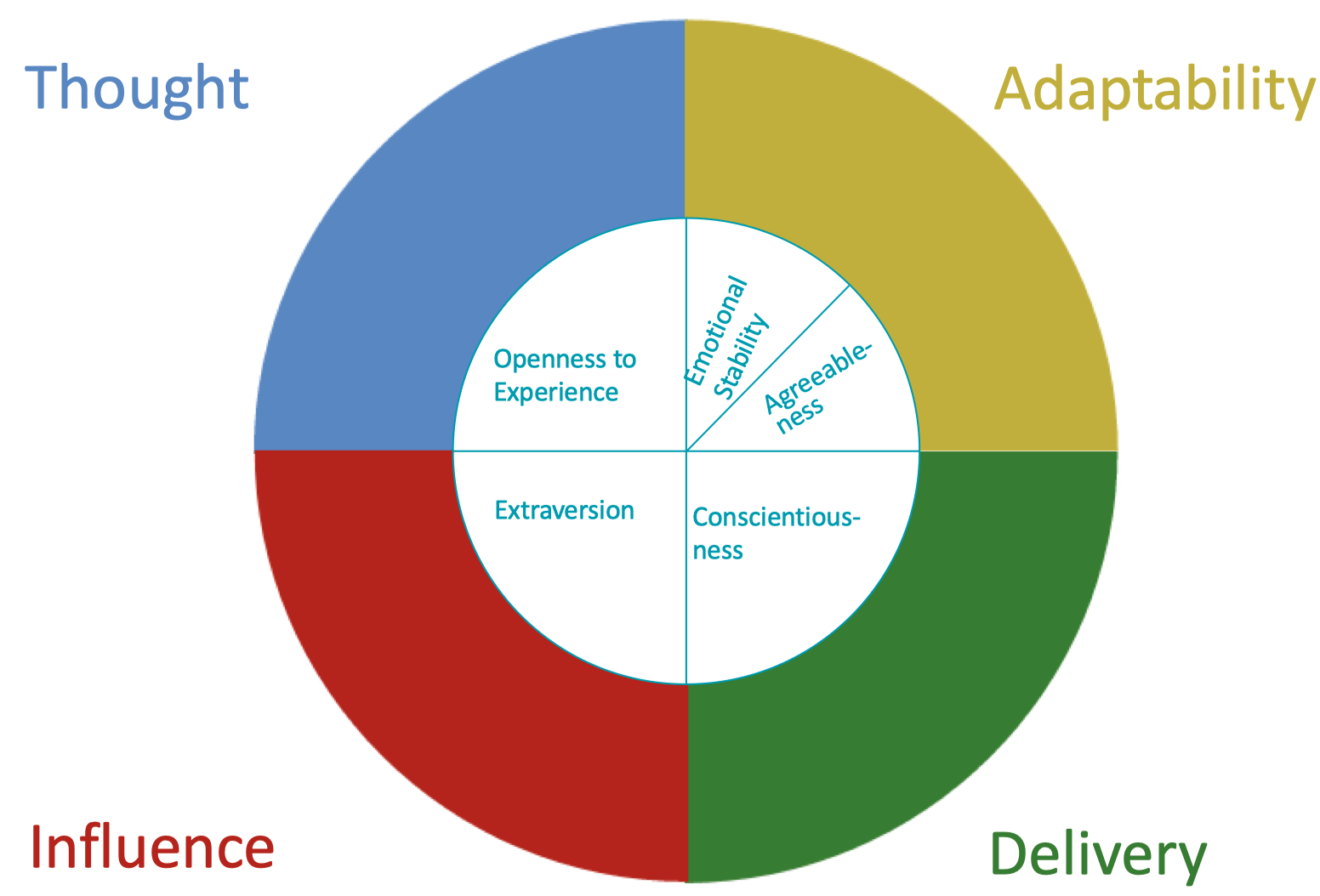
4 clusters - 12 sections - 36 dimensions - 108 facets
Thought: evaluative; investigative; imaginative
Influence: sociable; impactful; assertive
Adaptability: resilient; flexible ; supportive
Delivery: conscientious; structured; driven
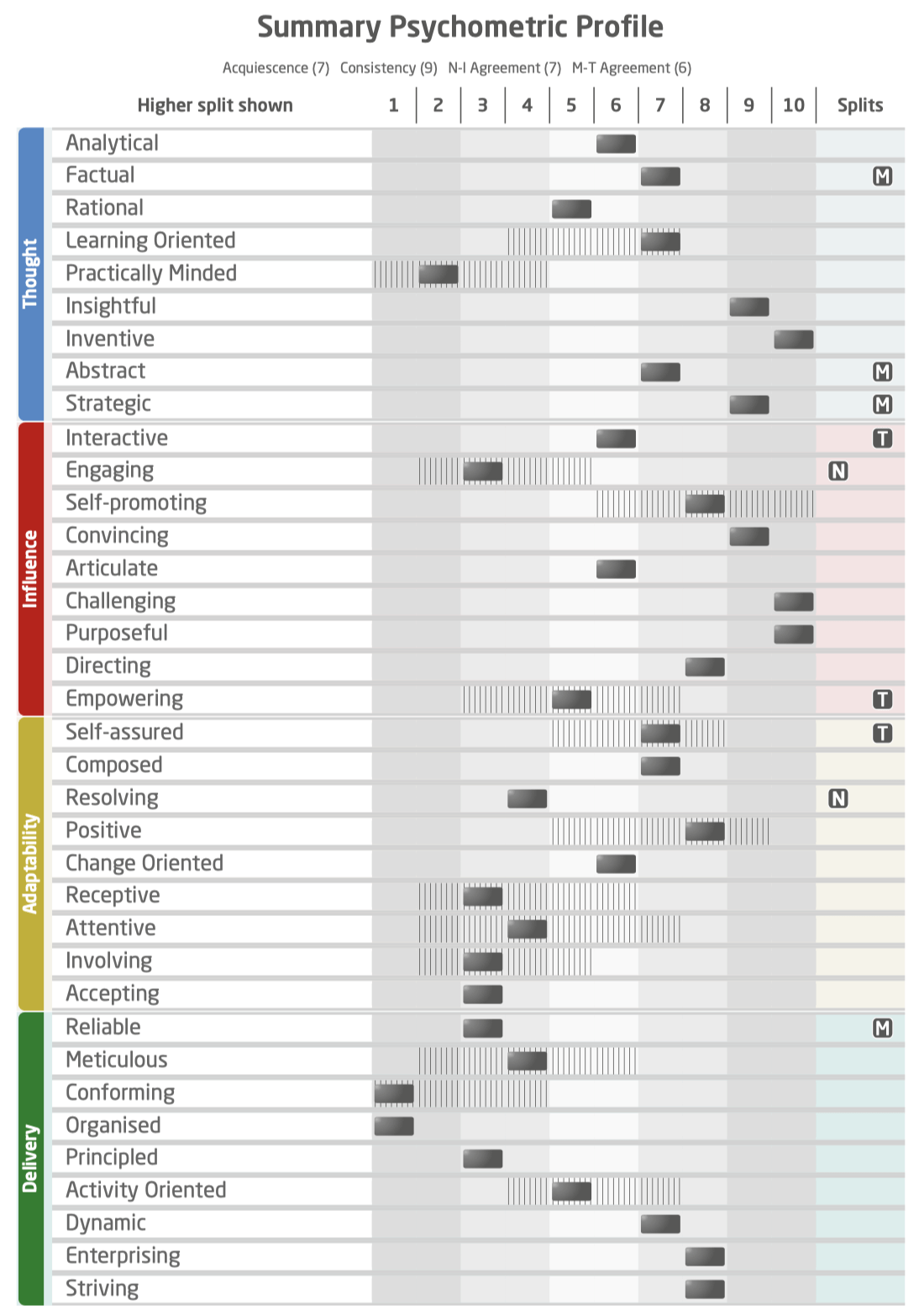
From personality traits to competencies
The dimensions are linked to personality traits:
- Allow to understand motives and talents, adopted and natural behaviors
- Useful for a detailed analysis of the personality in order to predict future behaviors or to change postures, behaviors and attitudes
The competencies are intended to predict professional success:
- Constitute a more stable version, more impactful but less detailed, that can be shared with more people and especially linked to a job or role profile
4 clusters - 12 sections - 36 competencies - 108 facets
Solving Problems: Evaluating Problems; Investigating Issues; Creating Innovation
Influencing People: Building Relationships; Communicating Information; Providing Leadership
Adapting Approaches: Showing Resilience; Adjusting to Change; Giving Support
Delivering Results: Processing Details; Structuring Tasks; Driving Success
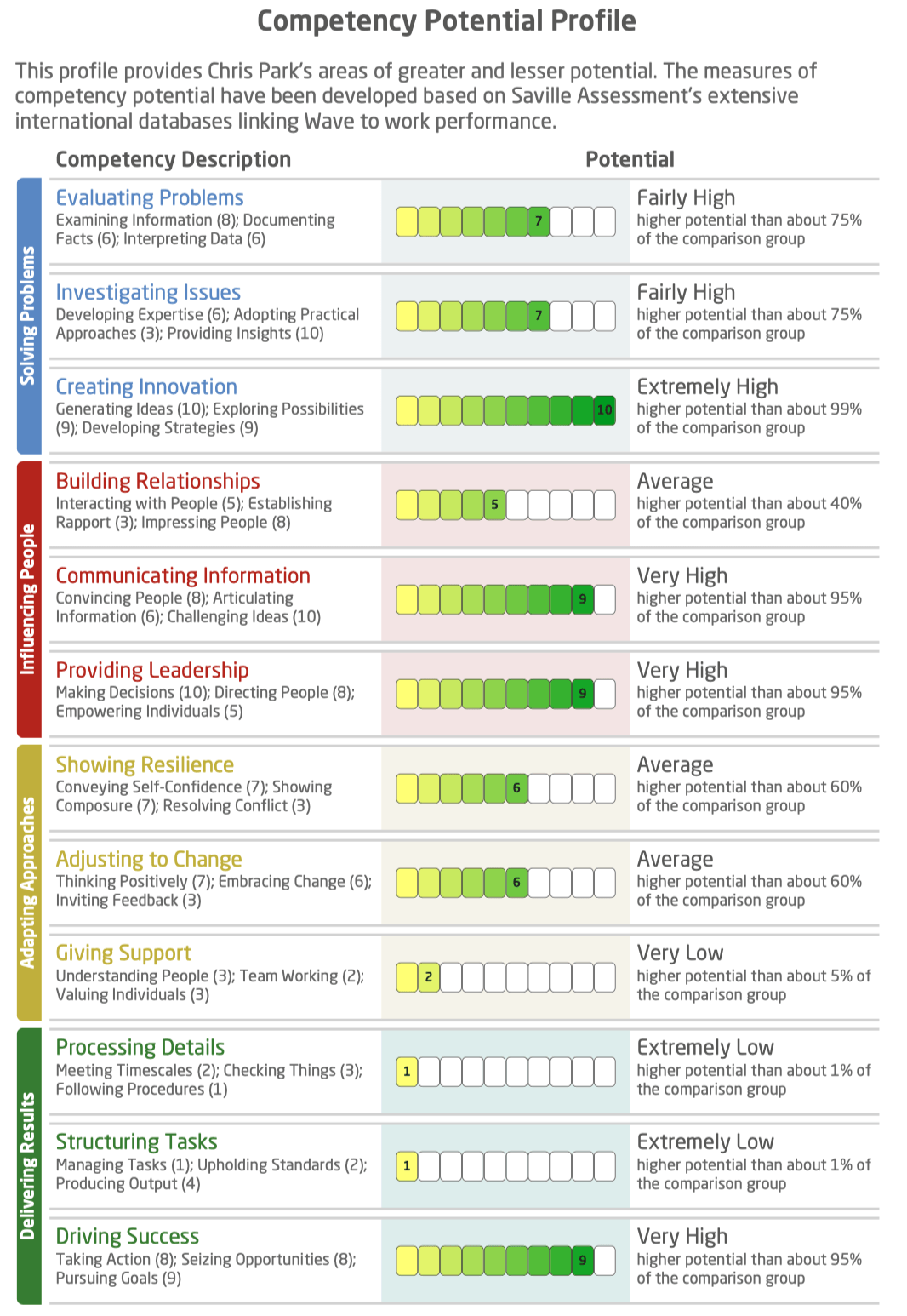
Wave Deep Dive
“Analyze in-depth to reveal talents beyond the humanly possible”
Facet Ranges

- When the difference between the scores on facets of the same dimension is high (≥3), it is indicated by hatching around the sten cursor.
- Highlight where an individual has a more unusual spread or range of scores across three facets; shows the "individuality" of a person
Motive-Talent Splits

Motive-Talent Agreement:
- Both M and T high: predicts sustainable performance
- M > T: shows interest for development
- M < T: explains the lack of performance of talented people or the dissatisfaction in a given position
Motives:
- Measured by the items of the questionnaire related to preferences, needs, desires, what makes a person tick
- "I want", "I like", "I am motivated by" ....
Talents:
- Measured by the items of the questionnaire related to efficiency, what the individual perceives as performance
- "I am", "I know well", "I am efficient" ...
Normative-Ipsative Splits

Normative-Ipsative Agreement:
- Degree of reliability of the results thanks to a dynamic questioning format
- Gap between what the respondent would like to be and what they think they are
- Provides an understanding of what the respondent will do when they are in a situation
- N > I: overestimation of the respondent; claims to be better
- N < I: respondent's undervaluation; underestimates himself
Normative (=rating):
- Independent measurement of scales
- Free choice; horizontal questions
- Easy to interpret factor analysis
- What the candidate claims to be
Ipsative (=ranking):
- Forced choice; dynamic questioning
- Classification of normative responses (more vs less close)
- Artificial intelligence

Four types of Responses
Wave uses 4 types of verifications to detect distortions in participants' responses:

Ratings Acquiescence:
- Is the participant critical or forgiving in their ratings?
- Do they have high / low self-esteem?
Consistency of Rankings:
- Is the participant consistent in their ranking of items?
- Are they transparent about who they are?
Normative–Ipsative Agreement:
- How well aligned is a participant's normative and ipsative scores?
- Do they have a clear image of them?
Motive–Talent Agreement:
- What is the degree of alignment between the motives and talents of a participant?
- Do they have a clear and stable identity?
Wave Validity
Does the tool measure what it is supposed to measure?
Likelihood of hiring a bad candidate. The strongest and most robust the process, the higher the validity, and the lower the chances of hiring a bad candidate.
- In-depth research to identify the personality traits that predict competencies, and therefore performance
- A measure of competencies potential that predicts performance by up to 57%, i.e. 4 to 5 times less risk of making mistakes than the flagship tools of the market

EPSOM project: international comparative study on the predictive validity of the main personality questionnaires, demonstrated the validity and the superiority of Wave's tools.
“A unique scientific study to measure tools against their potential for predicting performance, revealing the Wave difference.” (2008, Epsom project)
Scientific validation
Was the subject sincere? Are the questions relevant, able to measure the theme without ambiguity, interpretation, or cultural bias?
"A fast, efficient recruitment process, with absolute reliability of results, and therefore a reduced turnover rate"
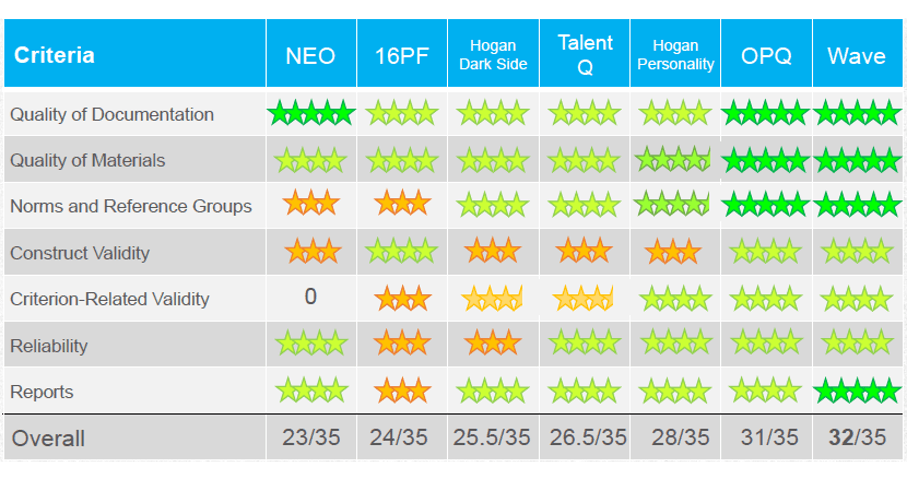
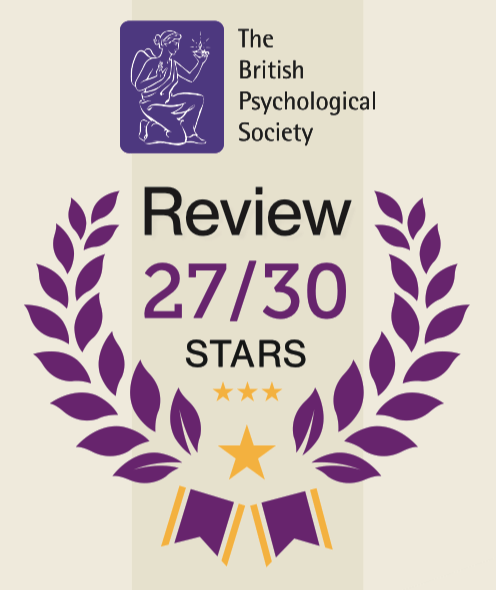
British Psychological Society (BPS): Scientific experts from the British Psychological Association officially recognize that Wave is the most reliable and valid assessment tool in the world.
Reliable and Secure Technology
All the tools and reports are available through the Oasys platform, a cloud solution that meets the highest standards in terms of data confidentiality, reliability (system availability, security, etc.) and ease of use (no installations, no license fees, ...).
- Data collected secured: encryption, double storage, separation of personal data and questionnaire data
- Access to data only with platform keys and software
The strategic axes of the reliability and security of IT and data protection systems
